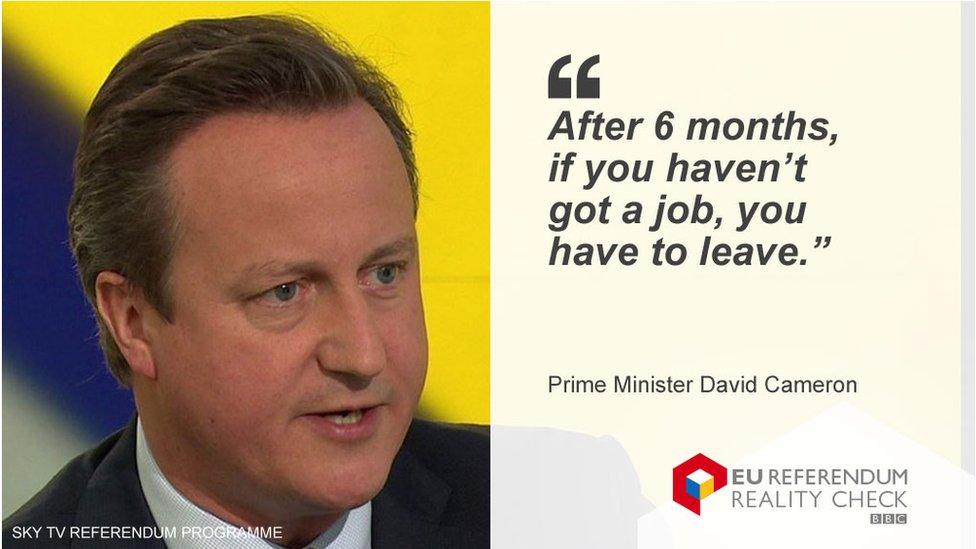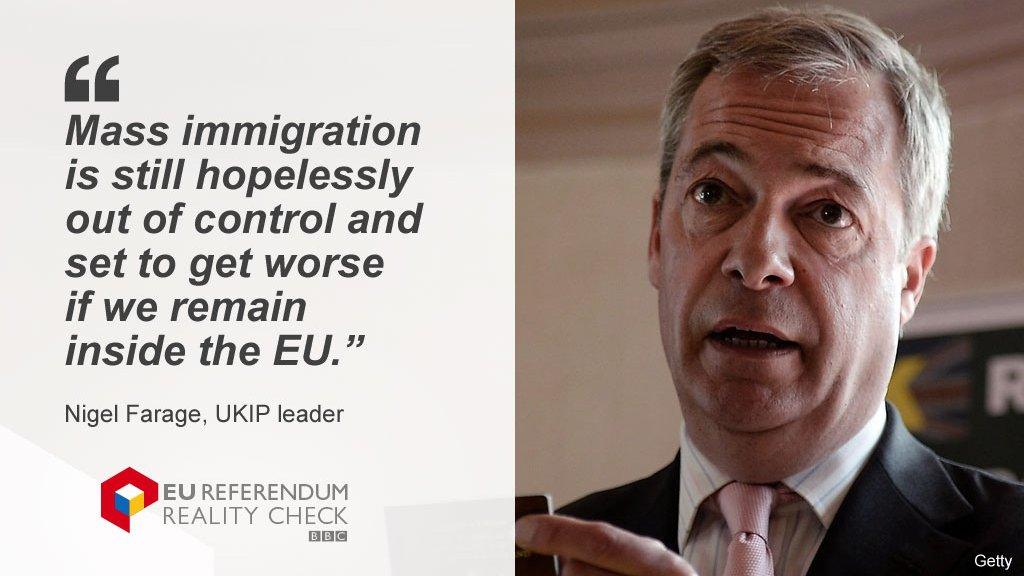Reality Check: Do EU jobseekers have to leave if they can’t find work after six months?
- Published

The claim: Prime Minister David Cameron says as a result of his negotiations in Brussels earlier this year - which has not come into effect yet but will if the UK votes to stay in the European Union - EU citizens who come to the UK but fail to find work will have to leave after six months.
Reality Check verdict: Existing EU rules allow states to deport citizens from other EU countries if they have become a burden on the welfare system of the state. UK law suggests this occurs after six months of unsuccessfully looking for work, but it is not clear how many people have been removed from the UK on this basis. The UK will have no additional powers in this area as a result of David Cameron's EU deal in February.
Speaking on Sky News' special referendum programme on Thursday evening, David Cameron addressed concerns about migration by referring to what he gained in his renegotiation with Brussels earlier this year.
"There are good ways to control migration and there are bad ways," he said.
"A good way is doing what I did in my renegotiation, which of course hasn't come into effect yet and will if we vote to stay in the European Union, which is to say to people if you come to our country first of all you don't claim unemployment benefit, second of all after six months if you haven't got a job you have to leave."
Both these points are already part of UK law, following amendments to The Immigration (European Economic Area) Regulations 2006 , external.
As things stand, EU citizens who come to the UK to find work cannot claim jobseeker's allowance during their first three months in the country.
After that they can claim for a total of 91 days, which can be split across several periods of jobseeking. They can continue claiming beyond that period if they can demonstrate that they are actively looking for a job and are likely to get it.
After a total of six months they can be removed if they still have not found a job, and have no realistic possibility of finding one, and require support from the welfare system.
These rules have been in place since early 2014, and are in line with existing EU legislation.
The EU-UK deal which David Cameron negotiated in February, and which will be implemented if the UK votes on 23 June to stay in the EU, will not change anything in this respect.
Home Office figures, external do not show how many people have been deported on the basis of being a burden to the UK since the rules came in, but the numbers are thought to be low.
Mr Cameron did make a third point on Sky News: "And third of all if you do come and get a job you have to work for four years paying into the system before you get full access to our welfare system."
That's the so-called emergency brake on access to the welfare system, which does not exist at the moment and will only come into force if the UK votes to stay in the EU on 23 June. It would affect all new arrivals and could be applied for a period of seven years.



- Published27 May 2016

- Published3 June 2016

- Published22 February 2016
